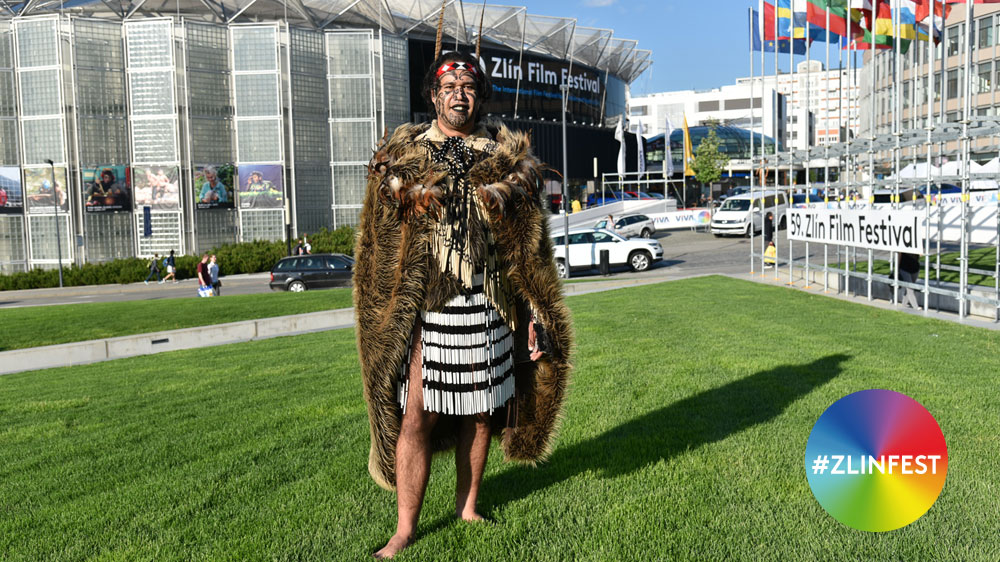POI E - It’s a difficult song to sing, but an easy song to feel
‘Poi E’, a simple song with a catchy beat released 32 years ago, has become New Zealand’s unofficial national anthem. The movie POI E is the story of how that iconic song gave pride to generations of New Zealanders. Director Tearepa Kahi captures a story that taps into the heart of the nation.

You can see this film: SATURDAY | 25.05 | 19:00 | GOLDEN APPLE CINEMA 5
In POI E, Tearepa Kahi tells the story of musician Maui Dalvanius Prime, the entrepreneur responsible for the iconic New Zealand song ‘Poi E’ becoming a huge hit in the 1980s. Today it could be called the country’s unofficial national anthem - it’s the song Kiwis use to celebrate success at major events. And every New Zealander feels they can sing it (the chorus at least). The song, composed by Dalvanius and performed by the Patea Māori Club, has been in the Top 10 charts in New Zealand every decade for the past 30 years.
Tearepa Kahi: ‘Poi E’ was the first pop song that used a drum machine, spacey noises, sound effects and put Te Reo Māori language to that music. It was the first time modern and traditional came together and when that fusion happened a huge feeling just leaped across the country. It might be a difficult song to sing, but it’s an easy song to feel.
It’s not only the story of a song, but also of its performer.
Khahi: Dalvanius was a cover band singer and entertainer on the Australian and South-East Asian nightclub circuit who had lost touch with his Māori heritage, arriving back home in Patea to nurse his ailing mother in the early 1980s. The performers of ‘Poi E’, the Patea Maori Club, found themselves on an unexpected roller-coaster ride as the song rocked the charts. They performed it around in the world. Today, the group includes three generations of performers, they maintain standards by practising every Monday night in their Patea clubrooms.
Through the song, the film explores a changing social climate over three decades.
Kahi: In 1982 in Patea the meat processing factory, the town’s main industry and employer of the majority of Māori in the area, was closed. The film places the creation of the song against this backdrop, combined with the dislocation of Māori youth growing up in the cities, cut off from their tribal origins. Dalvanius’ vision and inspiration was to use pop music to reach out to those disaffected youth and bring them back to their language and culture. Dalvanius explains, not understanding the Te Reo Māori language, he feels now heartbroken at not being able to understand his mother’s dying words. That can be seen as a motivator for his wanting young Māori to learn Te Reo through music they could relate to.
This story you wanted to pass on to the next generation?
Kahi: We look back fondly on that song now and when it’s time to celebrate we’re happy to sing a chorus and party along to it, but what Dalvanius and the Patea Māori Club did to put that song on the charts gives us a of lesson. This is a story about believing in something bigger and not giving up. It tells about a person who is going through a huge identity shift, dealing with the passing of his mother and adjusting to returning home from the bright lights overseas. And it’s these people who are suffering economically because the job that their families have done for the last 40 years is over.
You have also reconstructed the shooting of the original ‘Poi E’ music video.
Kahi: I wanted to pay tribute in that way because a lot of the frontline members and Joe Moana the bop master are still with us, so the opportunity was too good to pass up. Let’s have past and present meet together on screen in a video clip, made with a lot of love and integrity.
The search for relevant film and video footage must have been challenging.
Kahi: It has been a quest. Finding the final piece in the jigsaw enabled me to radically change the way I told the story. The discovery of an audio interview by a music journalist unlocked the key to the narrative. It enabled us to tell the story through Dalvanius’ own voice, which gave dynamic energy to the film.
A little bit of magic happened there.
Kahi: There’s been many spooky things that have occurred on this journey. I started off with a wish-list. In the beginning, I thought it would be amazing to find the original rushes of the music video. And there, locked away in a garage in Patea, were two canisters of film that probably hadn’t been opened up for 30 years. Also on the wish-list were the original sound tracks to the song. A day before we were due to shoot the interview with the sound engineers, an old collaborator of Dalvanius, contacted me saying, those tracks were in his garage. But the biggest and most unlikely find, was the cassette tape recording of the first-ever performance of ‘Poi E’, sung as soon as Dalvanius had finished writing it. It was long thought to be lost, but now uncovered in a ‘sock drawer’ (!) in Sydney. It seems like Dalvanius’s guiding hand has been with us as we’ve made this story.